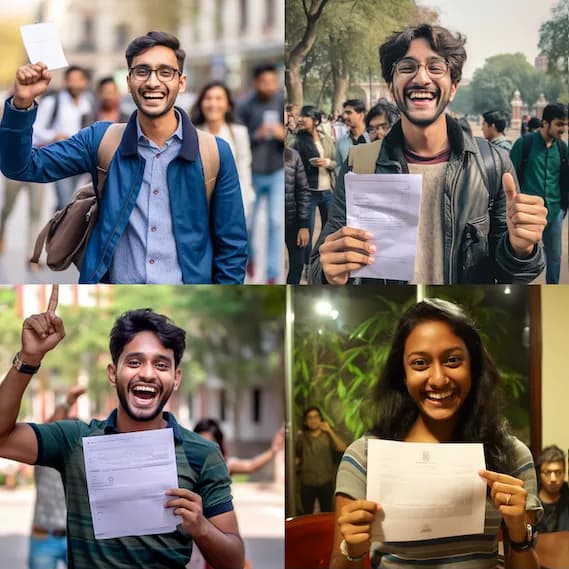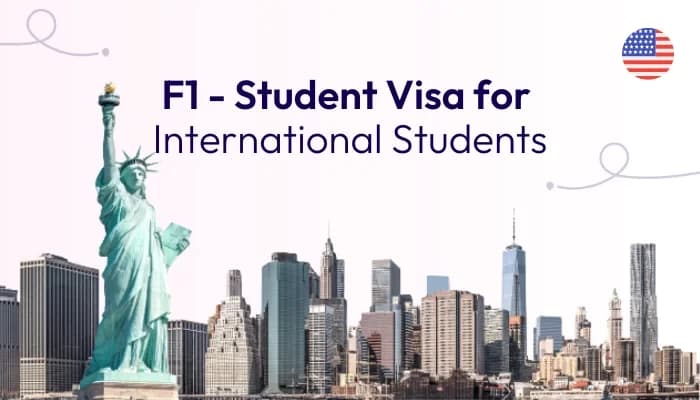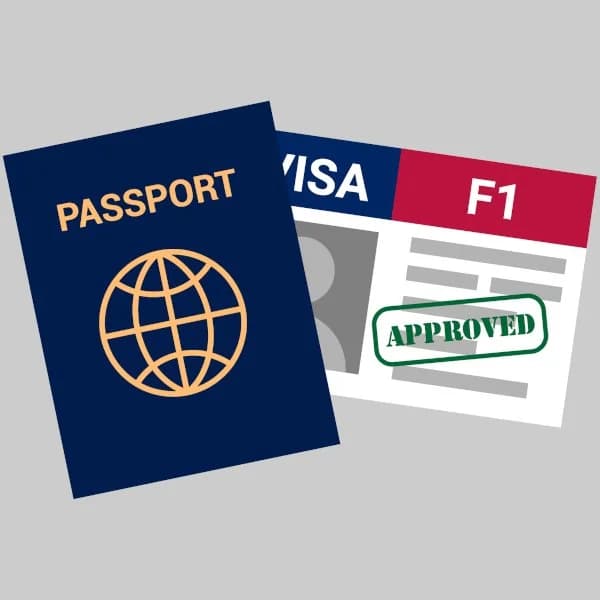F1 Visa: How did you find this university and how did you apply?

Key Highlights
- Visa officers want to see that you’ve done thorough research and are committed.
- Show the officer your detailed research process, like comparing courses or faculty.
- Highlight unique features of the university that drew you to it.
- Explain the steps in your application, from gathering documents to writing a statement of purpose.
If you're gearing up for the F1 Visa Interview, it's like preparing for the final act in your study abroad saga. You've hustled through the rigmarole of exams, paperwork, and nail-biting waits for acceptance letters. And now, the spotlight is on you as you sit across from a visa officer, whose questions might seem as probing as an intense first date Q&A.
Among the litany of questions that could be tossed your way, "How did you find this university?" and "How did you apply?" are almost as common as asking about your academic credentials. So, let's chat about how you can glide through these queries with the grace of a seasoned diplomat.
Understanding the Why
First things first, why do these questions hold such weight? When a visa officer throws these your way, they're peeking into your intentions and commitment. They want to see that you've done your homework and you're not just shooting in the dark. It's their job to assess whether you're a bona fide student who's going to make the most of the opportunity or if your goals are as murky as a foggy morning in San Francisco.
Step-by-Step Guide to Answering the Big Question
Step 1: Reflect on Your Journey
Before you set foot in the interview room, take a walk down memory lane. How did you find this university? Was it an advisor's recommendation, an alumnus's success story, extensive research, EducationUSA Seminar, USEF Seminar or a specific program that drew you in? Your answer should have its roots in a compelling and logical narrative.
Step 2: Detail Your Research Process
The key is to show the officer that you didn’t make a hasty decision. Describe your research process. Did you compare universities? Perhaps you considered the courses they offered or the faculty qualifications? Or maybe, it was the on-campus facilities, location, or their reputation among international students. Give them the full scoop!
Step 3: Highlight University-specific Features
Okay, this is where you can really shine. Why did THIS university stand out from the rest? Was it a unique course they offered? Or a particular research opportunity? The idea is to demonstrate a genuine interest in your chosen university.
Step 4: Outline the Application Process
After explaining how you found the university, it's time to describe the application process. Highlight the steps you took. Maybe you contacted the admissions office for clarifications? Or had to gather specific documents such as transcripts, or letter of recommendations? Did you have to write a compelling statement of purpose? This shows dedication and commitment to your educational pursuits.
Step 5: Stay Positive and Confident
Lastly, and most importantly, maintain a positive attitude throughout. Show them your enthusiasm for studying in the U.S. and reassure them of your intent to return to your home country after your studies. Confidence can make all the difference!
Four Sample Answers with Reasoning
Let's move from the theoretical to the practical. How does all this advice translate into actual answers? Here are four sample answers and the reasoning behind each:
Sample Answer 1:
"I came across University of Arizona during a college fair in my city. I was impressed by the detailed presentation by the university representative about the advanced research facilities and the strong alumni network. After the fair, I visited the university’s official website, downloaded the brochure, and connected with a few current students through online forums. Their positive experiences further solidified my decision. The application process was pretty straightforward. I submitted my transcripts, letters of recommendation, and a statement of purpose detailing my academic aspirations."
Reasoning: This answer effectively demonstrates a proactive approach to university selection, highlighting the importance of research facilities and alumni network. It also provides a clear path of the application process.
Sample Answer 2:
"A close family friend who is an alumnus of New York University recommended it to me. Knowing the value of firsthand experiences, I spent hours discussing the university's culture, faculty, and opportunities with him. Intrigued, I did further research online, went through reviews by international students, and even attended a couple of webinars hosted by the university. I felt a strong alignment with my academic goals. The application was online. I submitted the required documents, took the necessary entrance tests, and participated in an online interview."
Reasoning: Personal recommendations play a huge role in university selection. This answer taps into that and shows a diligent research process. The details about the application give a comprehensive view of the effort put in.
Sample Answer 3:
"While browsing for universities offering specialized courses in Biology, Cornell University consistently ranked among the top. Articles, student testimonials, and academic publications further piqued my interest. I was particularly drawn to the course structure and the profile of the professors in my department. I reached out to the admissions office with a few queries and was pleased with their prompt and detailed responses. Applying involved an online form, an essay about my passion for the field, and a few recommendation letters."
Reasoning: This answer showcases the importance of course specificity and faculty quality. The proactive approach of reaching out to the admissions office adds a personal touch and shows initiative.
Sample Amswer 4:
"My journey to finding this university began when I read a paper published in the 'Journal of Environmental Science' by one of their leading professors. The innovative research conducted there sparked my interest, as I am deeply committed to environmental conservation. I applied directly through the university's website, ensuring each aspect of my application was meticulously completed, especially my research proposal, which mirrors the university's forward-thinking approach to environmental challenges."
Reasoning: It demonstrates initiative and the pursuit of academic alignment, while also detailing the thoughtful application process.
Wrapping Up
Securing an F1 Visa is your golden ticket to not just an education, but an adventure in the land of opportunity. When you sit down for that interview, remember: it's not just about impressing with your academic chops—it's about storytelling, about sharing your journey with confidence and clarity. Your answers to these common questions are more than just responses; they're affirmations of your dedication, your aspirations, and your readiness to take on the academic challenge that lies ahead.
So, rehearse your story, wear your ambition proudly, and let's get you that visa approval. Because, at the end of the day, this interview is not just a hurdle—it's the gateway to your dream.
Want to stay on this topic? Check out the detailed articles below.
Top 10 F1 Visa Interview Questions for Nepali Students
F1 Visa Interview: What is your expectation from the course?
Have Questions About This Topic?
Join our community to get personalized advice and share experiences with others going through similar visa processes.





